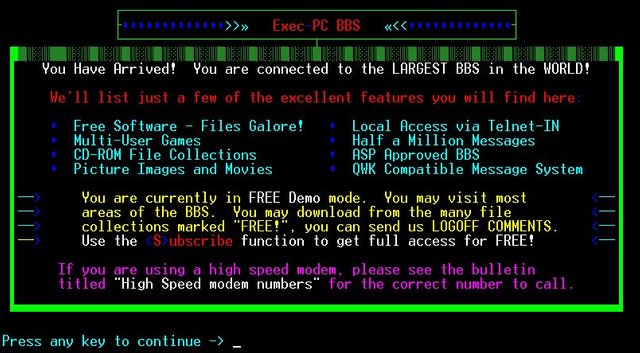Week 3: Hacker History
This week we decided to take a step back to look more at the foundations of crypto-movements. We read a few chapters from Coding Freedom: The Ethics and Aesthetics of Hacking by Gabriella Coleman. This book is an ethnography on Hackers done over the course of a few years of intense field work. I appreciated reading something that is a little more attuned to the humanities-lover in me. We read the introduction and the first two chapters which covers the basic history of open source software, the complex networks of hacker culture, and globalization of intellectual property law. It’s also worthy to note that just as the F/OSS the text investigates, the book is also creative commons licensed, such that it is free and available online.
Book Review
I enjoyed reading Coleman’s personal experiences and perceptions of the Hacker world. She discusses the common origin stories of the people she interviewed. Stories of dismantling appliances and memorizing manuals seem all too common. She discusses this ability to “misuse” almost anything to promote a sense of heightened individual expression that extends past liberalist ideals. This expression is performed not through consumption, but rather through production.
Here we move into ethics of the hacker world. Coleman grapples with the tensions between free speech and source code. Some argue that source code is text that should be categorized as free speech. Hackers work against driving anything to become property of ownership, instead labor intensively, finding joy through flow and self-direction, to benefit the collective, rather than the self.
In Chapter 1, Coleman charts the typical life history of a hacker, tracing paths of childhood curiosities, teenage fascination with conspiracy, vigorous passion for understanding computing systems, applying skills to gaming, and eventually, acquiring softwares and forging communities and meetups. Here I am reminded of my personal curiosity as a kid listening to my mom’s dial-up AOL account, mesmerized by this infamous running man:

While I never fell into the early rabbit holes of BBS or messing around with Unix systems, in reading this book I felt a sense of camaraderie with the people Coleman was interviewing. This kind of universal, intercollective pursuit is very much still here and thriving. We see communication systems like BBS graduate into platforms like Steem where ideas and media are shared and improved upon.

Coleman discusses how crucial interactivity has been in the history of software development. Here, a democracy in reporting bugs, critiquing, improving, and growing programs is established. She closes this chapter illustrating the heart of hacker culture--the conference. Here, again, I’m thinking of Steemfest (an event that I’ve not attended but have read about from others on steemit). Coleman argues that no one is a “guest” at these events, instead, everyone acts equally as a participant there to “collectively enact, make visible, and subsequently celebrate many elements of their quotidian technological lifeworld.” (28)
Finally, Coleman moves into the long and messy history of copyright laws. Here she historically grounds the commodification of software in the 1970s-80s; soon after, intellectual property laws boosted the state of profitability for software companies. She describes F/OSS as “crucial nodes in a more democratic informational economy.” (63) Nodes?! Democratic informational economy?! Sounds pretty damn familiar to the work that’s being done now with the blockchain.
Next week we’ll look more into divergent movements like the cypherpunks and the ways that would eventually feed into the crypto-revolution.
Lecture Review
Lydia and I also attended a lecture this week titled “Blockchain Basics Workshop.” I’ll write briefly on some takeaways from that talk. The woman presenting used some great interactive exercises to visualize the blockchain--here’s a pic of lydia and other students lined up to form their own blockchain
The second part of the lecture took a bizarre turn to a very specific application of blockchain technology. The presenter discussed companies using blockchain as a system of ethical accountability. She discussed a company called Brilliant Earth that uses the blockchain to track their diamonds. I got a little lost here as to how this can really ensure ethical practices. Couldn’t the company just lie? So many of these companies are internally audited. Here's a screenshot from their website:

I think ledger technology is super great for manufacturing in general as a way to keep track of parts and production but I’m not sure I follow the argument that it can bring some kind of ethical transparency to the marketplace. She cited companies like Nestle and Walmart that are turning towards it which really made me scratch my head in relation to ethical practices. It just seems shady to me. I’m curious to know if any of you out there have thoughts on this. Let us know in the comments!
All for this week. If you are curious to origins of this project and the @cryptocuties check out our intro video here
It's not that corporations like Nestle and Walmart adopting blockchain technology to improve efficiency in their supply chain management will increase the transparency of their supply chain to the consumer, but it could, in theory.
More likely, in the case of those large corporations which are adopting blockchain technology, they would employ a private blockchain.
Global corporations and even small businesses can utilize private blockchains, in-house, and also between other partners with whom they do business. This allows them to have proprietary information locked away from general view, while gaining the advantageous qualities of blockchain, i.e. an immutable ledger of events which can be shared between authorized parties and which removes any shred of opacity between them.
On the other hand, corporations with requirements to report information to the public, or ones that wish to do so for the benefits that such transparency would bring, are also totally capable of using a public blockchain to reveal their transactions to broader scrutiny, and thus gain a great deal of public trust.
Say a shoe manufacturer wanted to prove to the public that they don't use child labor and other terrible business practices; they could in theory, create a public blockchain, or leverage an existing one like Steem, and bring all their partners onboard, to create total transparency at every stage of production. This would also have the potential benefit of reducing margins between producer and manufacturer since the unit cost and other information would be transparent, it would create a sort of open bidding process where suppliers would have to compete among each other to provide more ethical, and more cost-effective materials... etc.
All this just off the top of my head.
The technology is neutral... it can be used for shady, or completely transparent purposes.
Steem, is completely transparent.
Yao!
@lovejoy
And just imagine all the terrible waste in government spending which could be reduced if all that data were subject to public scrutiny! Didn't the Pentagon lose track of 1 Billion dollars last year? I would love to see the Pentagon's supply chain on a public ledger... no more black-ops funds! Accountable to congress and the people again, as they should be.
LOL!
https://www.cnbc.com/2018/03/16/blockchain-could-save-federal-agencies-billions.html
Congratulations @cryptocuties ! This post has been randomly Resteemed! For a chance to get more of your content Follow @Resteemers
What is your opinion about this my friend ?https://steemit.com/hacking/@qsyal/the-teenager-who-broke-into-the-electronic-wallets-of-ledger-says-it-is-still-at-risk-developers-are-denying
Congratulations @cryptocuties! You received a personal award!
Click here to view your Board
Do not miss the last post from @steemitboard:
Congratulations @cryptocuties! You received a personal award!
You can view your badges on your Steem Board and compare to others on the Steem Ranking
Do not miss the last post from @steemitboard:
Vote for @Steemitboard as a witness to get one more award and increased upvotes!